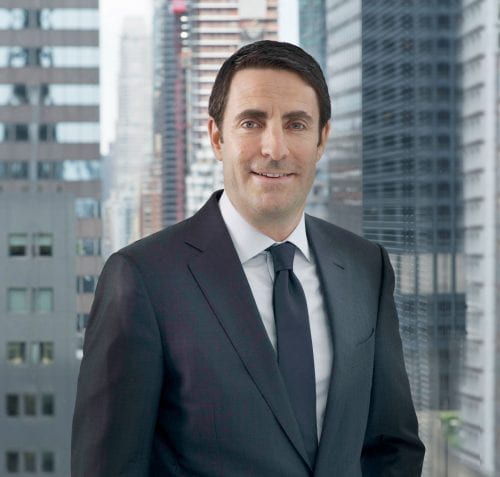
The Cornell Baker Program recently welcomed Doug Weill, Founder and Co-Managing Partner of Hodes Weill & Associates as a guest in our Distinguished Speaker Series. Doug Weill and David Hodes founded Hodes Weill & Associates (Hodes Weill) in 2009. Since then, the firm has grown into a leading global capital advisory firm focusing on the real estate investment and fund management industry. Mr. Weill oversees the firm’s origination of new business, manages institutional private placement assignments, and leads the operations of the firm. Prior to Hodes Weill, he was a Managing Director for Credit Suisse, where he co-founded Credit Suisse’s Real Estate Private Fund Group, and co-managed Credit Suisse’s Real Estate Investment Group. He received his Bachelor of Science in Hotel Administration from Cornell University in 1988 and serves on the Advisory Board for the Baker Program and on the board of directors of the Cornell Real Estate Council (CREC).
Mr. Weill structured his talk around Hodes Weill’s operations in the real estate private equity industry, where they provide strategic advisory services to investment management firms, providing access to capital from institutions around the world. Since the founding of the firm in 2009, Hodes Weill has raised over $20 billion on behalf of their clients, across various institutional strategies, structured as closed and open-ended commingled funds, joint ventures, and separate accounts. The firm markets to institutions globally, including pension funds, insurance companies, sovereign wealth funds, and university endowments, and operates in the U.S., Europe, Asia, the Middle East, and occasionally emerging markets. Mr. Weill also shared with us the firm’s plan to expand its focus into real assets and infrastructure and to open an office in Amsterdam.
Hodes Weill aims to supplement institutional investors’ access to a range of investment strategies, using their investment market expertise and strong institutional process familiarity. Mr. Weill highlighted that, with 3,000 active institutions around the world, investment strategies vary in shape and size, with some firms preferring a diversified portfolio in multiple countries, while others focus on specialized assets such as data centers and logistical warehouses. Interestingly, due to the recent 20% to 30% growth in the consumption of media content, he also noted that some firms have adopted targeted strategies to invest in television and movie production studios.
Mr. Weill informed us that the institutional investment market is facing an unprecedented increase in capital allocations. Many global institutional investors are increasing their pace of investments in real estate, in order to reach their target allocations, which average 10.7%. Institutions are significantly underinvested relative to their target allocations, by a margin of 140 to 150 basis points, or 1.40% to 1.50% (according to the Institutional Real Estate Allocations Monitor, a survey the firm publishes annually in partnership with the Baker Program). On top of that, institutional investors are also planning to pour capital into the market in order to hedge against inflation increases. Due to this environment, institutional market transactions in Q4 2021 were extremely active, and Mr. Weill predicts this liquidity will continue through 2022.
The institutional capital investment market is currently brimming with market opportunities, with Hodes Weill at the forefront in the field. Mr. Weill shared with us that the key to his firm’s success is to demonstrate expertise in the field, provide a strong track record, and establish an experienced team. He reminded us that an alignment of interest with institutions and familiarity with the institutional process is critical for success in this field. He is excited to see the evolution of the industry and expects to see continual growth in institutional capital allocations over the coming years.
